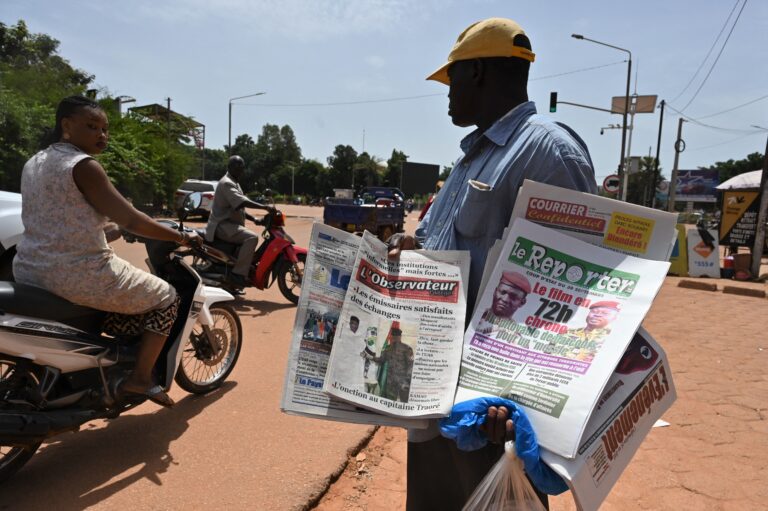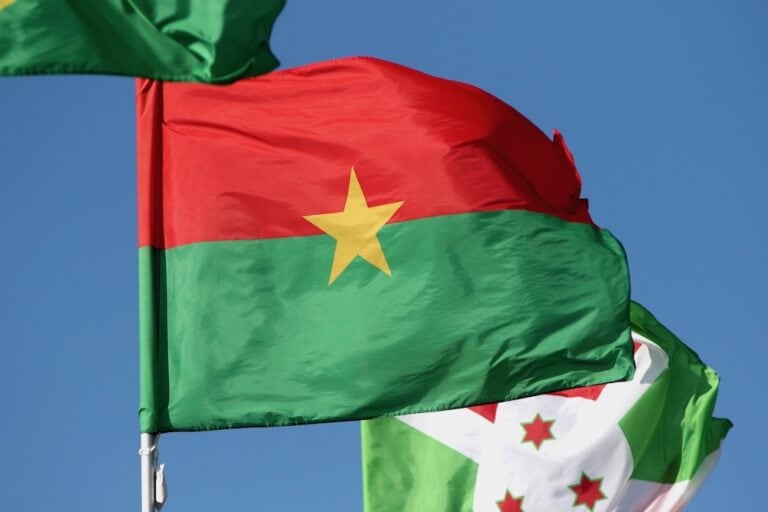(RSF/IFEX) – Reporters Without Borders has voiced stupefaction at the two-month suspended prison sentences and fines of 300,000 CFA francs (450 euros) which a court in Ouagadougou on 22 January 2007 passed on Germain Bitiou Nama, the publisher of the privately-owned fortnightly L'”Evénement”, and Newton Ahmed Barry, its editor, for linking the president’s brother, François […]
(RSF/IFEX) – Reporters Without Borders has voiced stupefaction at the two-month suspended prison sentences and fines of 300,000 CFA francs (450 euros) which a court in Ouagadougou on 22 January 2007 passed on Germain Bitiou Nama, the publisher of the privately-owned fortnightly L'”Evénement”, and Newton Ahmed Barry, its editor, for linking the president’s brother, François Compaoré, to the 1998 murder of journalist Norbert Zongo. The newspaper has appealed.
“We express our total solidarity with ‘L’Evénement’,” the press freedom organisation said. “It has been convicted by a judicial system which, in cases relating to the Zongo murder, has already demonstrated that it only redresses wrongs supposedly done to the authorities.”
Reporters Without Borders added: “We reaffirm that François Compaoré lied in his statement to the Independent Commission of Enquiry (CEI) and that it is therefore legitimate to voice suspicions about his role in the Zongo case. “L’Evénement’,” journalists were just doing their job when they raised this issue, but this is clearly a crime in Burkina Faso when the president’s inner circle is affected.”
The prosecution was brought against the newspaper over several articles in the 25 October 2006 issue concerning a news conference about the Zongo case which Reporters Without Borders secretary-general Robert Ménard had given in Ouagadougou five days before. The president’s brother above all felt he had been libelled by front-page headline, accompanied by his photo, that said: “So it’s him, François Compaoré. Until now we had not been able to say his name. Reporters Without Borders has finally done it.”
Reporters Without Borders held the news conference to announce that it had just given the Burkina Faso public prosecutor the original version of the 1999 CEI report, the one the commission drafted before it was toned down on the insistence of two of its members who represented the government. The final version completely eliminated passages about the contradictions in François Compaoré’s statement to the commission, and about businessman Oumarou Kanazoé’s attempts to silence Zongo prior to his murder.
The organisation had asked the public prosecutor to reopen the investigation into the Zongo murder on the basis of the “new evidence” contained in this original draft. After an investigating judge dismissed all charges in July 2006, the case was considered closed and, under article 189 of the code of criminal procedure, it could thereafter only be reopened if there were “new accusations” liable to “strengthen the accusations that have already proved too weak” or to “contribute new developments useful in establishing the truth.”
An investigative journalist and editor of the weekly “L’Indépendant”, Zongo was murdered along with three companions on 13 December 1998.


